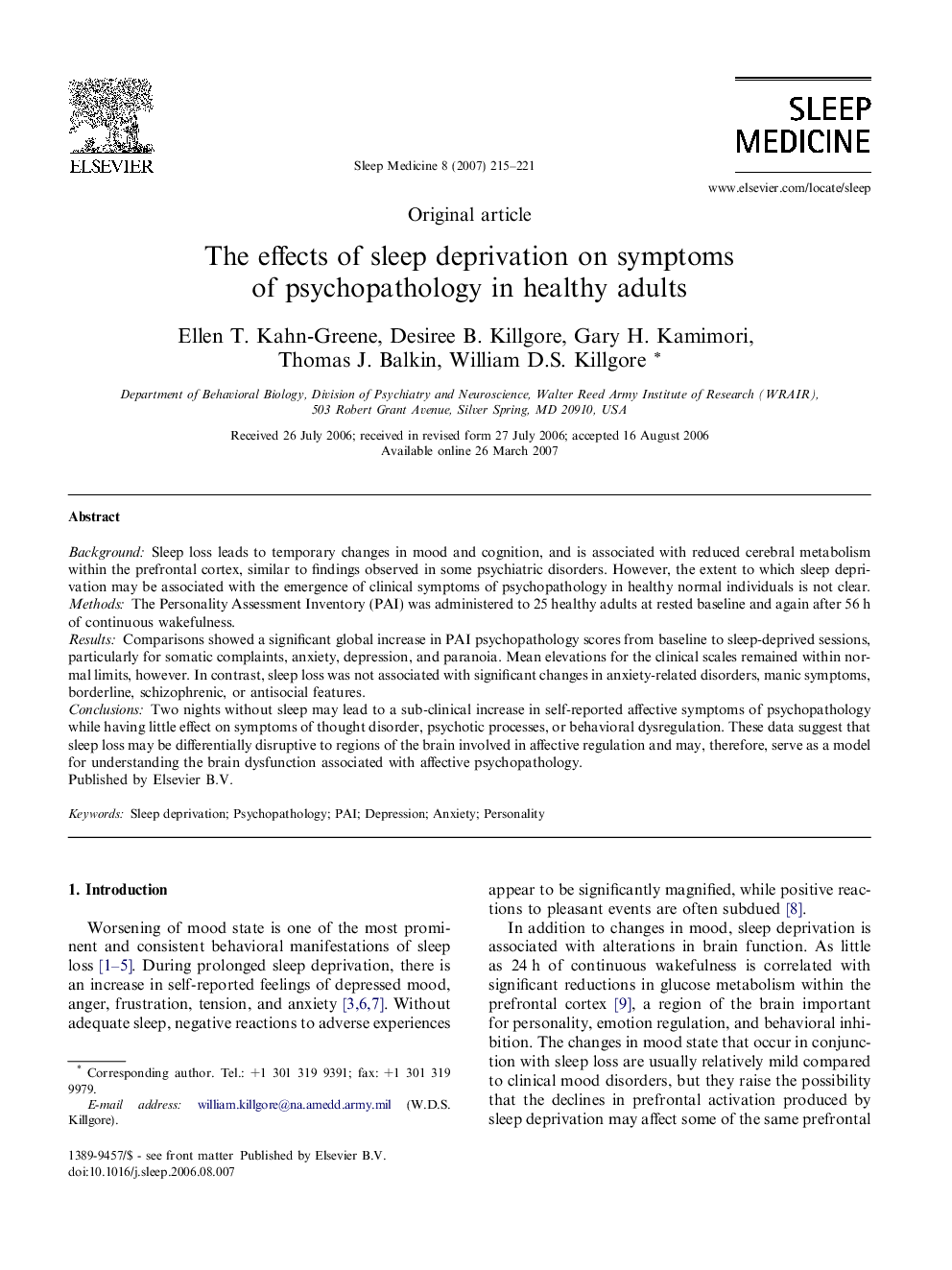| Article ID | Journal | Published Year | Pages | File Type |
|---|---|---|---|---|
| 3178136 | Sleep Medicine | 2007 | 7 Pages |
BackgroundSleep loss leads to temporary changes in mood and cognition, and is associated with reduced cerebral metabolism within the prefrontal cortex, similar to findings observed in some psychiatric disorders. However, the extent to which sleep deprivation may be associated with the emergence of clinical symptoms of psychopathology in healthy normal individuals is not clear.MethodsThe Personality Assessment Inventory (PAI) was administered to 25 healthy adults at rested baseline and again after 56 h of continuous wakefulness.ResultsComparisons showed a significant global increase in PAI psychopathology scores from baseline to sleep-deprived sessions, particularly for somatic complaints, anxiety, depression, and paranoia. Mean elevations for the clinical scales remained within normal limits, however. In contrast, sleep loss was not associated with significant changes in anxiety-related disorders, manic symptoms, borderline, schizophrenic, or antisocial features.ConclusionsTwo nights without sleep may lead to a sub-clinical increase in self-reported affective symptoms of psychopathology while having little effect on symptoms of thought disorder, psychotic processes, or behavioral dysregulation. These data suggest that sleep loss may be differentially disruptive to regions of the brain involved in affective regulation and may, therefore, serve as a model for understanding the brain dysfunction associated with affective psychopathology.
